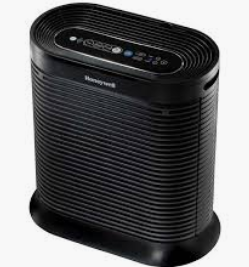This post is brought to you by iPropertyManagement, an online source for help guides on landlords, listing of local property management companies, and more.
Poor air quality is a growing epidemic. When most individuals think of poor quality air they think of pollution, but we’re not just talking about the outdoors. Every year there are approximately 3.8 million deaths per year from household air pollution.
Indoor air pollution is commonly caused by smoke from dirty cook stoves, fuels, tobacco smoke, and the by-products of aerosol sprays, paints, cleaners, and pesticides. The solution to poor indoor air quality problems is an air purifier. An air purifier with an advanced HEPA filter offers several benefits.
Causes of poor air quality
Pollution in your home can be more toxic than the pollution outside. Safe indoor air quality is actually a requirement in most buildings and structures. Everyday items release gases and particles into the air causing pollution. If ventilation indoors is poor or ventilation systems are dirty or faulty, then indoor pollutants may increase. Indoor pollutants may also rise if enough outdoor air is not brought in. Lastly high temperatures and humidity can also decrease air quality and increase pollutants indoors.
There are several types of indoor pollutants that most individuals are unaware of. These sources include:
- Fuel burning appliances
- Tobacco
- Asbestos- containing insulation
- Newly installed carpet, flooring, or upholstery
- Cabinetry or furniture made of some pressed wood
- Household cleaning products, personal care products, especially aerosol sprays
- Humidification devices
- Excess moisture
- Outdoor sources that enter indoors such as radon and pesticides
Keep in mind that the older a source is, the more pollutants it emits. In addition, whether or not these sources emit continuously depends on the maintenance of that source. For example an improperly adjusted stove will emit more carbon monoxide than a properly adjusted one. It is important to keep all household appliances and products up to date and functioning properly.
Health risks from poor air quality
Living with poor air quality is not something to ignore. Dirty air is not just air. It affects the way you breathe and can cause long-term and permanent health problems. Even just a short exposure to an air pollutant can cause immediate effects.
Short-term effects are usually treatable and may include: irritated eyes, nose, and throat, headaches, dizziness, and fatigue. The best treatment is to simply remove the individual from further exposure to the polluted air.
Untreated short-term effects can of course lead to long-term ones, the first being that early signs of asthma may show up, become aggravated, or worsened. Continuous or repeated exposure to poor quality air can lead to long-term respiratory diseases, heart disease, lung cancer, and other cancers.
Most individuals may be skeptical of a little dirty air, since it is usually hardly noticeable. The fact is that cases vary from person to person. Age, preexisting medical conditions, and amount of exposure to the pollutant determines how severely an individual may be affected.
Regardless of the severity or if symptoms fade or not, property owners should take air quality very seriously. Attempts should be continuously made to improve indoor air quality.
How an air purifier works
Air purifiers are constantly evolving and being improved, but they have been around for hundreds of years, albeit in pretty rudimentary forms. Air purifiers that were once only for individual use are now used in entire homes to protect your whole family.
Several brands of air purifiers are available but, as resources like iPropertyManagement point out, it’s the HEPA filter that makes all the difference. When purchasing an air purifier that uses the HEPA filter, you know you’re getting good, quality air.
Air purifiers use filters, electrical attraction, and ozone to clean dirty air. A fine sieve is located within the air purifier to collect and filter circulating air particles. In the most advanced air purifiers, the finer the sieve, the smaller the air particles that may be trapped. HEPA actually stands for High Efficiency Particulate Air filters and are guaranteed to collect 99.97% of airborne particles.
Benefits of an air purifier
If clean air is not enough of a benefit to utilize an air purifier, there are several others. Even homes that are chemical-free can still have air pollutants.
Allergens such as dust and pet odors are present even in the cleanest of homes, but an air purifier can reduce even these less harmful pollutants. In addition, for the 50 million plus individuals affected by asthma, air purifiers significantly reduce asthma triggers.
Lung cancer is one of the most serious, permanent effects of poor quality air and may be caused by radon gas, tobacco products, or other pollutants. An air purifier can filter these harmful pollutants and therefore reduce your risk of lung cancer.




